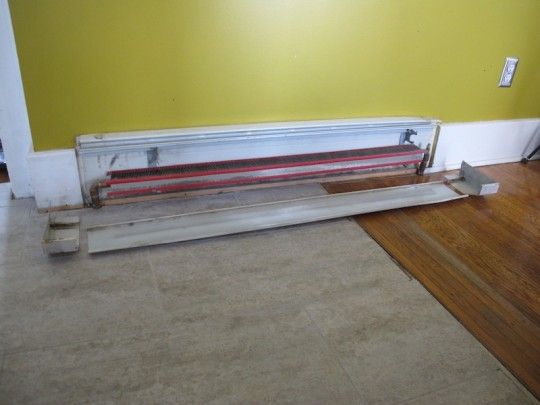Removal Of A Wall Floor Heater

And sometimes moving those lines is a huge task so difficult that removing the wall just isn t practical.
Removal of a wall floor heater. Start on one side of the wall heater and examine the sides of the unit removing any screws you find. These devices work by passing electricity to a heating element which warms the surrounding air. Slim upright box style registers may be fastened with screws to the wall the. Heating plumbing and electrical lines will have to be rerouted.
Figure a shows the most common things found inside a wall. Step by step tutorial instructions on how to remove baseboard heaters. They take up lots of floor space and have an unpleasant appearance. If you are replacing it with electric heat you definitely want to remove your old radiators and heating coils.
Armed with this innovative tool and a novel technique you ll make fast clean and. How to remove ceramic tile from a radiant heated floor. Why you should replace a floor furnace. Use either a screwdriver or a drill to remove the screws that are holding your wall heater onto the wall.
A main drain running through the wall from a second floor bathroom could be very difficult and expensive to reroute. Remove those old dangerous baseboard heaters that are notorious for causing housefires. The heat distribution is spotty with areas closer becoming too hot and more distant rooms left too cold. Electric baseboard heaters are also called radiant heaters.
A hot water baseboard heater is an interesting concept but unfortunately an inefficient and outdated manner of heating your home. Radiant heat a method of heating a room or floor through tubes of water or heating elements placed in concrete or under flooring has. To remove this style lift the register off the floor prying up the edges with a flathead screwdriver if necessary. Exactly how many screws depend on both the overall size and the model of the unit.
Because hot air rises these heaters are located at the baseboards in your house next to the floor which makes for better heat circulation.














































